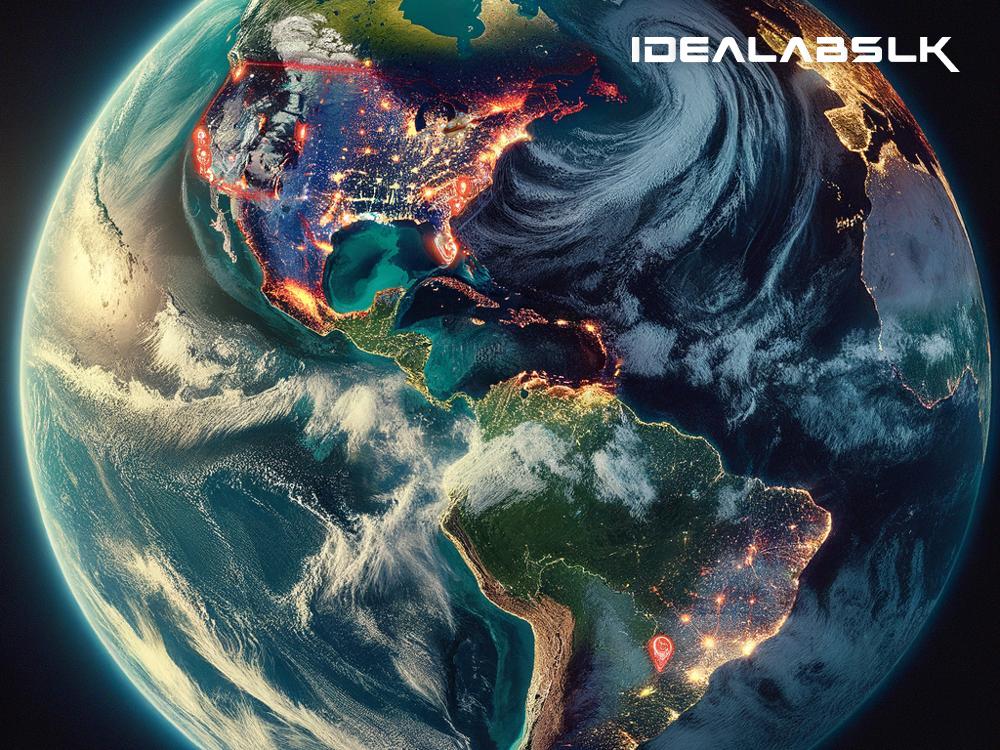Title: How Space-Based Data Will Change Earth’s Disaster Management by 2024
In the coming year, space-based data is going to turn the tables on how we manage and recover from disasters here on Earth. It sounds like something out of a sci-fi movie, but it's real, and it's happening. So, what does this mean for us? Let’s break it down into simpler terms.
First up, what is space-based data? In a nutshell, it’s information collected by satellites orbiting Earth. This information can be about weather patterns, the health of crops, the state of oceans, and so much more. But one of the most game-changing aspects of space-based data is its potential to revolutionize disaster management and recovery.
Until now, managing disasters has often been a reactive process. A hurricane hits, and we respond. An earthquake occurs, and then relief efforts are mobilized. But what if we could anticipate these events better, or even understand their impacts in almost real-time? That’s where space-based data comes into play. By 2024, the way we handle disasters could be significantly different, and here’s how:
1. Early Warning Systems:
Imagine receiving a warning well in advance of a natural disaster. Space-based data makes this possible by monitoring weather patterns and predicting events like hurricanes and tsunamis with greater accuracy. This early warning can save lives by giving people more time to evacuate and prepare. It’s like having a crystal ball that gives us a heads-up before things go south.
2. Real-Time Analysis:
When a disaster strikes, time is of the essence. By utilizing satellite imagery, we can get an immediate picture of what’s happening on the ground. This can help rescue teams understand the extent of damage, identify the hardest-hit areas, and prioritize where to send help first. Instead of blindly navigating through affected regions, they can have a map that tells them precisely where to go.
3. Recovery and Rebuilding:
After the immediate crisis, the long road to recovery begins. Space-based data can play a huge role in this phase too. By monitoring changes over time, satellites can help assess the effectiveness of rebuilding efforts, track the recovery of vegetation after wildfires, or even monitor the rebuilding of infrastructure. It’s like having a progress tracker that helps ensure that recovery efforts are on the right path.
4. Climate Change Mitigation:
Many of the disasters we face today are exacerbated by climate change, from fiercer hurricanes to more devastating wildfires. Space-based data is crucial for understanding and mitigating the effects of climate change. By monitoring greenhouse gas emissions, deforestation, and melting ice caps, we can better understand the broader context of natural disasters and take steps to mitigate their impact.
5. Boosting Global Collaboration:
Disasters don’t care about borders, but managing them often requires international effort. Sharing space-based data can foster global collaboration, allowing countries to pool resources, expertise, and information. This shared approach can significantly enhance the effectiveness of disaster response and recovery operations on a global scale.
So, by 2024, how different will our disaster management strategies be? Quite different, to be honest. With the advancements in space technology and the increasing number of satellites being launched, we’re at the cusp of a new era. The integration of space-based data into disaster management and recovery processes promises to make our responses faster, more targeted, and ultimately more effective. It will empower us to not only react to disasters but also anticipate them, manage them better, and recover more quickly.
In conclusion, as we look forward to 2024, it’s clear that space-based data is set to revolutionize how we deal with disasters. The potential benefits of this technology are enormous, offering us a chance to save more lives, reduce economic losses, and recover more swiftly from the blows nature deals us. It’s a reminder of how interconnected our world is and how space, far from being a distant frontier, is deeply relevant to our daily lives and the challenges we face on Earth.

